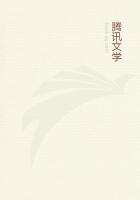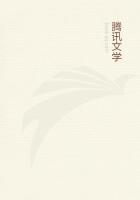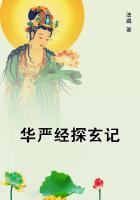If you should wish to close the lips of a logician calling himself a philosopher, who dares to argue that in this life grief overbalances pleasure, ask him whether he would accept a life entirely without sorrow and happiness. Be certain that he will not answer you, or he will shuffle, because, if he says no, he proves that he likes life such as it is, and if he likes it, he must find it agreeable, which is an utter impossibility, if life is painful; should he, on the contrary, answer in the affirmative, he would declare himself a fool, for it would be as much as to say that he can conceive pleasure arising from indifference, which is absurd nonsense.
Suffering is inherent in human nature; but we never suffer without entertaining the hope of recovery, or, at least, very seldom without such hope, and hope itself is a pleasure. If it happens sometimes that man suffers without any expectation of a cure, he necessarily finds pleasure in the complete certainty of the end of his life; for the worst, in all cases, must be either a sleep arising from extreme dejection, during which we have the consolation of happy dreams or the loss of all sensitiveness. But when we are happy, our happiness is never disturbed by the thought that it will be followed by grief.
Therefore pleasure, during its active period, is always complete, without alloy; grief is always soothed by hope.
I suppose you, dear reader, at the age of twenty, and devoting yourself to the task of ****** a man of yourself by furnishing your mind with all the knowledge necessary to render you a useful being through the activity of your brain. Someone comes in and tells you, "I bring you thirty years of existence; it is the immutable decree of fate; fifteen consecutive years must be happy, and fifteen years unhappy. You are at liberty to choose the half by which you wish to begin."
Confess it candidly, dear reader, you will not require much more consideration to decide, and you will certainly begin by the unhappy series of years, because you will feel that the expectation of fifteen delightful years cannot fail to brace you up with the courage necessary to bear the unfortunate years you have to go through, and we can even surmise, with every probability of being right, that the certainty of future happiness will soothe to a considerable extent the misery of the first period.
You have already guessed, I have no doubt, the purpose of this lengthy argument. The sagacious man, believe me, can never be utterly miserable, and I most willingly agree with my friend Horace, who says that, on the contrary, such a man is always happy.
'Nisi quum pituita molesta est.'
But, pray where is the man who is always suffering from a rheum?
The fact is that the fearful night I passed in the guardhouse of St.
Mary resulted for me in a slight loss and in a great gain. The small loss was to be away from my dear Therese, but, being certain of seeing her within ten days, the misfortune was not very great: as to the gain, it was in experience the true school for a man. I gained a complete system against thoughtlessness, a system of foresight. You may safely bet a hundred to one that a young man who has once lost his purse or his passport, will not lose either a second time. Each of those misfortunes has befallen me once only, and I might have been very often the victim of them, if experience had not taught me how much they were to be dreaded. A thoughtless fellow is a man who has not yet found the word dread in the dictionary of his life.
The officer who relieved my cross-grained Castilian on the following day seemed of a different nature altogether; his prepossessing countenance pleased me much. He was a Frenchman, and I must say that I have always liked the French, and never the Spainards; there is in the manners of the first something so engaging, so obliging, that you feel attracted towards them as towards a friend, whilst an air of unbecoming haughtiness gives to the second a dark, forbidding countenance which certainly does not prepossess in their favour. Yet I have often been duped by Frenchmen, and never by Spaniards--a proof that we ought to mistrust our tastes.
The new officer, approaching me very politely, said to me,--
"To what chance, reverend sir, am I indebted for the honour of having you in my custody?"
Ah! here was a way of speaking which restored to my lungs all their elasticity! I gave him all the particulars of my misfortune, and he found the mishap very amusing. But a man disposed to laugh at my disappointment could not be disagreeable to me, for it proved that the turn of his mind had more than one point of resemblance with mine. He gave me at once a soldier to serve me, and I had very quickly a bed, a table, and a few chairs. He was kind enough to have my bed placed in his own room, and I felt very grateful to him for that delicate attention.
He gave me an invitation to share his dinner, and proposed a game of piquet afterwards, but from the very beginning he saw that I was no match for him; he told me so, and he warned me that the officer who would relieve him the next day was a better player even than he was himself; I lost three or four ducats. He advised me to abstain from playing on the following day, and I followed his advice. He told me also that he would have company to supper, that there would be a game of faro, but that the banker being a Greek and a crafty player, I
ought not to play. I thought his advice very considerate, particularly when I saw that all the punters lost, and that the Greek, very calm in the midst of the insulting treatment of those he had duped, was pocketing his money, after handing a share to the officer who had taken an interest in the bank. The name of the banker was Don Pepe il Cadetto, and by his accent I knew he was a Neapolitan. I communicated my discovery to the officer, asking him why he had told me that the man was a Greek. He explained to me the meaning of the word greek applied to a gambler, and the lesson which followed his explanation proved very useful to me in after years.

